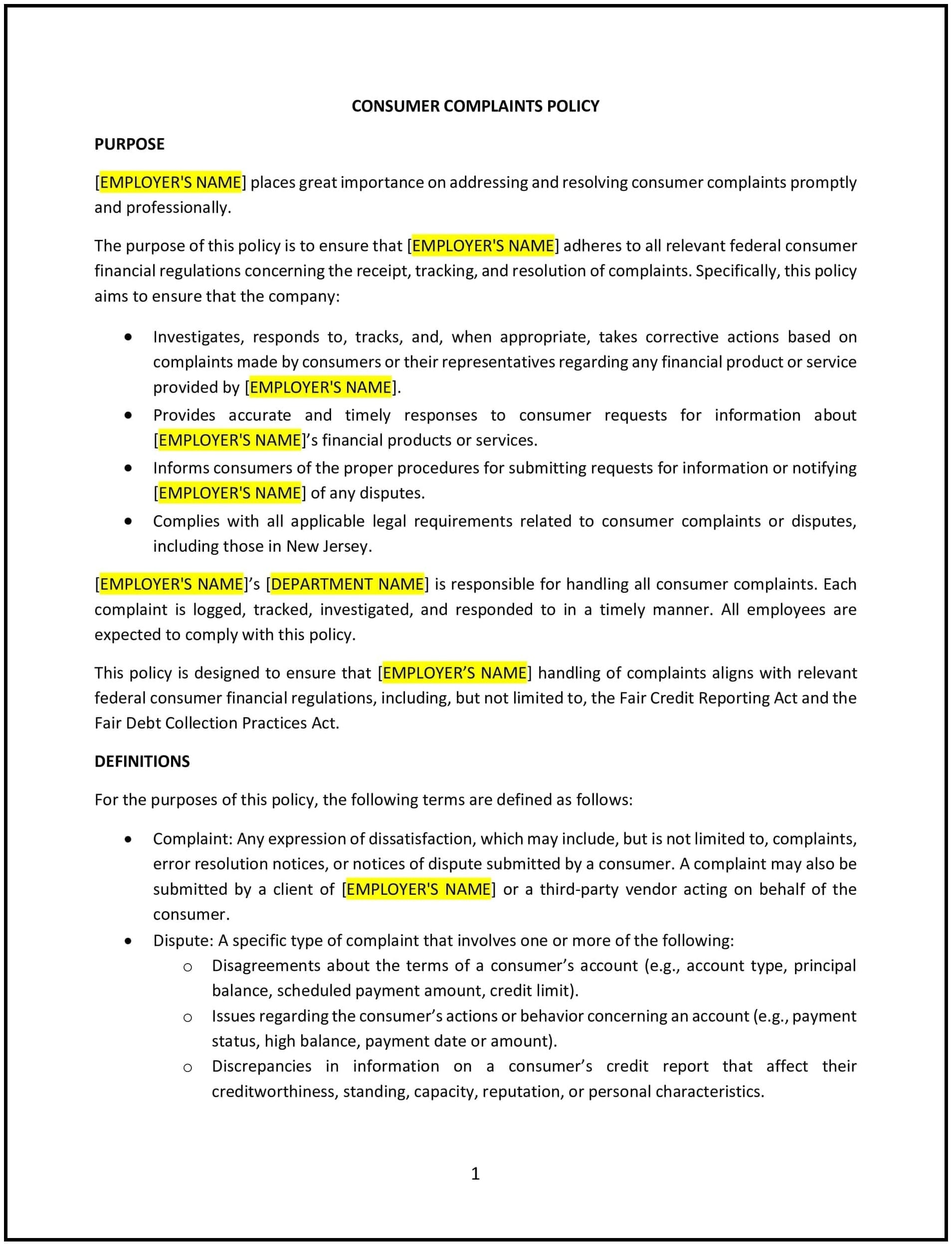Consumer complaints (New Jersey) policy: Free template
Got contracts to review? While you're here for policies, let Cobrief make contract review effortless—start your free review now.

Customize this template for free
Consumer complaints (New Jersey)
A consumer complaints policy helps New Jersey businesses establish clear procedures for addressing customer concerns and resolving issues efficiently. This policy outlines how complaints should be submitted, the steps for reviewing and resolving them, and the role of employees in maintaining customer satisfaction. It also sets expectations for response times and documentation to ensure consistent handling of complaints.
By adopting this policy, businesses in New Jersey can enhance customer trust, improve service quality, and minimize potential disputes.
How to use this consumer complaints policy (New Jersey)
- Define acceptable complaint channels: Specify how customers can submit complaints, including online forms, phone calls, emails, or in-person requests.
- Set response time expectations: Establish timelines for acknowledging, investigating, and resolving consumer complaints.
- Assign responsibilities: Clarify which employees or departments are responsible for handling consumer complaints and escalating issues when necessary.
- Outline investigation procedures: Detail the steps for reviewing complaints, gathering information, and determining appropriate resolutions.
- Document and track complaints: Require employees to log all complaints, resolutions, and follow-ups to identify trends and improve service.
- Offer resolution options: Provide clear guidelines for handling refunds, replacements, service corrections, or alternative solutions based on the nature of the complaint.
- Maintain professionalism and transparency: Require employees to communicate with customers respectfully, keeping them informed about the status of their complaints.
- Review and update: Regularly assess the policy to incorporate consumer feedback, service improvements, and New Jersey-specific consumer protection regulations.
Benefits of using this consumer complaints policy (New Jersey)
This policy provides several benefits for New Jersey businesses:
- Enhances customer satisfaction: Provides a structured approach to resolving issues, improving customer trust and loyalty.
- Strengthens brand reputation: Demonstrates a commitment to customer service and responsible business practices.
- Reduces legal risks: Helps businesses address consumer concerns before they escalate into disputes or regulatory complaints.
- Improves service quality: Identifies recurring issues and areas for improvement to enhance overall customer experience.
- Standardizes complaint resolution: Ensures consistency in handling consumer complaints across the business.
Tips for using this consumer complaints policy (New Jersey)
- Communicate the policy clearly: Ensure customers and employees understand complaint submission processes and resolution expectations.
- Train employees on complaint resolution: Provide guidance on handling consumer concerns professionally and efficiently.
- Monitor and analyze complaint trends: Use complaint records to identify common issues and improve business operations.
- Offer multiple resolution options: Allow flexibility in resolving complaints based on customer needs and business policies.
- Review the policy regularly: Update the policy as needed to reflect changes in consumer expectations and New Jersey consumer protection laws.